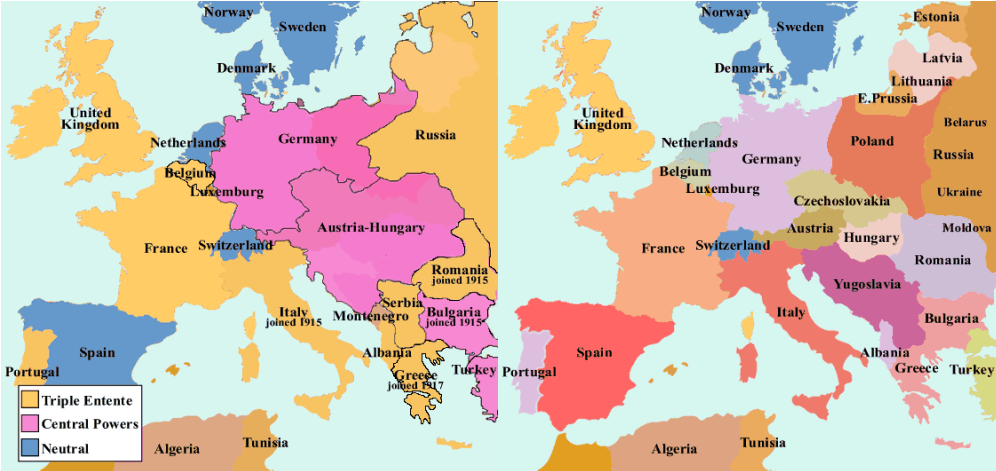CHAPTER 13 TOTALITARIAN LEADERS
Objective:
Rationale:
The aftermath of World War I with its winners and losers sets the stage for totalitarians to raise among the rubble of defeated countries. 5 powerful men emerge from the social and political situation and transform the way government and power operate in a society. Having a basic understanding of these men and the situation where they developed in essential in understanding the late 20th century.
Evidence:
Being able to list the Totalitarian leaders and the different conditions that led to their power, as well as the results of their reign.
___________________________________________________________________________________________
Essential Question -Demagogues can they be both positive and negative?.
1. Given its restrictions on personal freedom, why did Fascism appeal to many Italians?
2. What are similarities of Communism and Fascism, and what are the differences.
QUIZ #3 (answer quiz #3 now but submit the day of the test with the other sections)
CHAPTER 13 TOTALITARIAN LEADERS
Objective:
Students will be able to understand the widespread disillusionment with prewar institutions, authorities, and values the resulted in a void that was later filled by totalitarians.
Students will be able to discuss the influence of World War I on literature, art, and intellectual life in the West (e.g.,Pablo Picasso, the :lost generation" of Gertrude STein, Ernest Hemingway)
Rationale:
The aftermath of World War I with its winners and losers sets the stage for totalitarians to raise among the rubble of defeated countries. 5 powerful men emerge from the social and political situation and transform the way government and power operate in a society. Having a basic understanding of these men and the situation where they developed in essential in understanding the late 20th century.
Evidence:
Being able to list the Totalitarian leaders and the different conditions that led to their power, as well as the results of their reign.
___________________________________________________________________________________________
Essential Question -Demagogues can they be both positive and negative?.
1. Given its restrictions on personal freedom, why did Fascism appeal to many Italians?
2. What are similarities of Communism and Fascism, and what are the differences.
QUIZ #3 (answer quiz #3 now but submit the day of the test with the other sections)
Thursday - Totalitarianism Presentation #2
Chapter Outlines Schedule
Due Thursday March 30th
Chapter 13 Section #3
Due Monday April 3rd
Chapter 13 Section #4
Due Tuesday April 4th
Chapter 13 Section #5
Mapping - finish by the day of the Test
Fascist Countries Europe 1939
PDF's assigned for Chapter 13
Fascism in Italy
Soviet Union Under Stalin
Rise of Nazi Germany
Red Scare, Hitler Propaganda, Stalinist Russia, Italian Totalitarianism
Due Thursday March 30th
Chapter 13 Section #3
Due Monday April 3rd
Chapter 13 Section #4
Due Tuesday April 4th
Chapter 13 Section #5
Mapping - finish by the day of the Test
Fascist Countries Europe 1939
PDF's assigned for Chapter 13
Fascism in Italy
Soviet Union Under Stalin
Rise of Nazi Germany
Red Scare, Hitler Propaganda, Stalinist Russia, Italian Totalitarianism
Fascist Countries Europe 1939
PDF's assigned for Chapter 13
Fascism in Italy
Soviet Union Under Stalin
Rise of Nazi Germany
Red Scare, Hitler Propaganda, Stalinist Russia, Italian Totalitarianism
Chapter 13 Sectional Presentation
The Sectional Summaries are to be used as resources to assist with understanding the material
The Sectional Summaries are to be used as resources to assist with understanding the material






